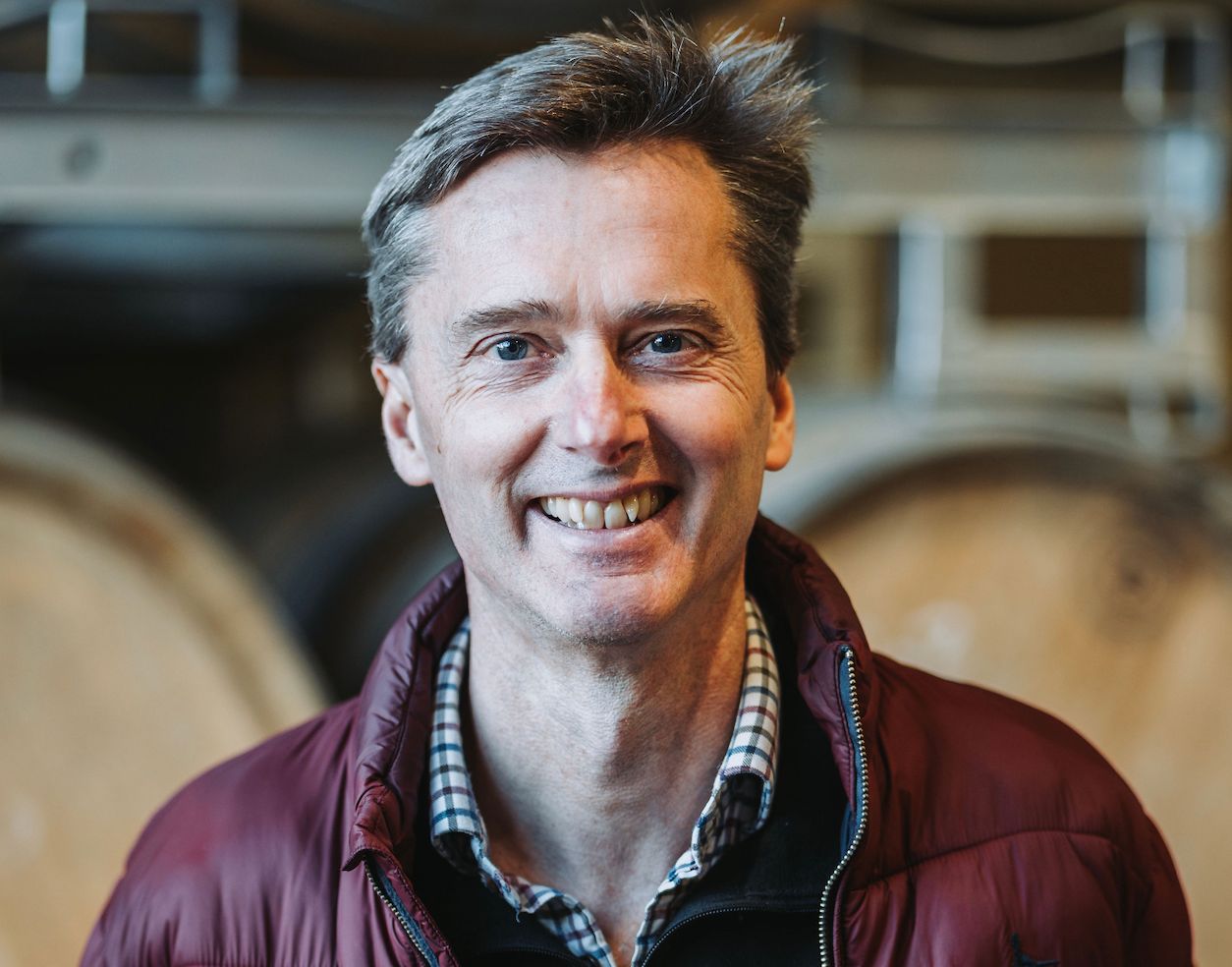Being prepared to invest in the latest high-end winemaking technology is a key part of Defined Wine’s growth strategy, says Henry Sugden.
Can you tell us the concept behind Defined Wine and how you came up with it?
I was keen to get involved in English wine and friends told me there was a requirement for contract winemaking. We have focussed on that and it remains our USP – we have no vineyards or brands, so just provide winemaking services for other people
What sort of contracts have you worked on so far and how do you measure if they are a success or not?
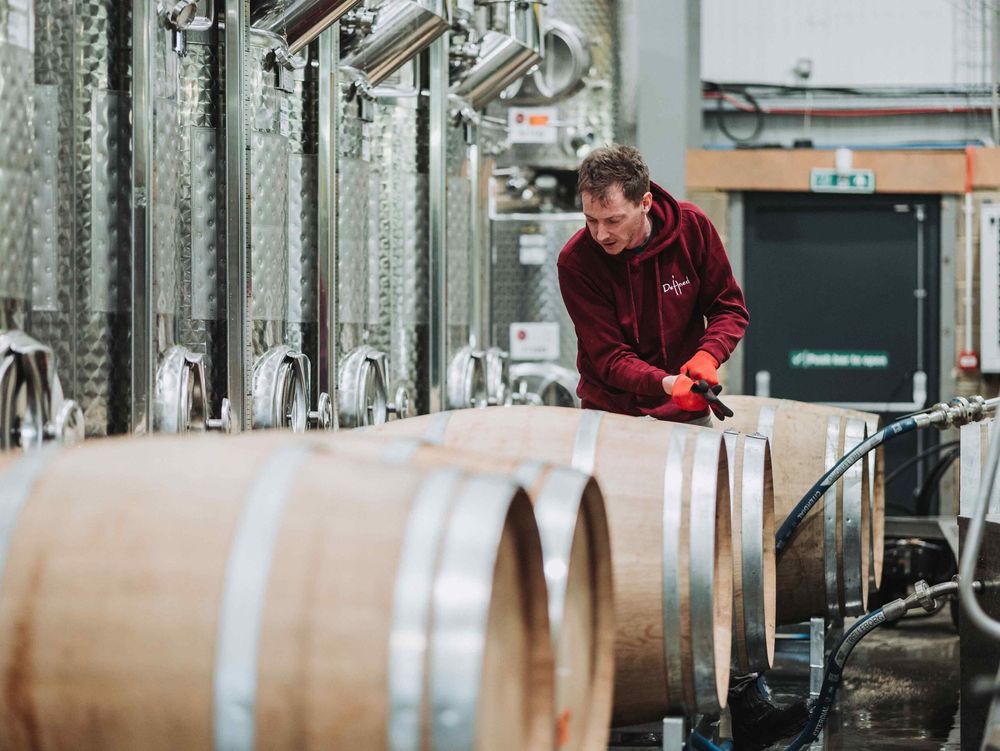
Defined Wine works with a wide number of English wine producers and growers on contract winemaking projects
We have a huge range of contracts – from pressing and fermenting 200 tonnes, down to a batch of a single barrel, although our minimum is now 1.5 tonnes. We also provide contract bottling and have been disgorging over 400,000 bottles a year for a range of small and big English brands – discretion is part of the service, so no names.
I think there are lots of ways of measuring success, most often it is by repeat business, but it is great hearing from people how much their customers have enjoyed the wines we have made for them and seeing their businesses grow.
What is the approach you take when looking to take on a new customer – what do you need to know about them and their requirements for your contract winemaking service to work effectively?
It is always helpful to understand their objectives and routes to market. And after that we ask that to define the style of wine they want, hence the name ‘Defined Wine’. Some of our bigger clients have their own winemaker, so we follow exactly what they want, others may have just planted a vineyard and know very little about wine.
Do you turn down projects if you feel there is something not quite right – any examples?
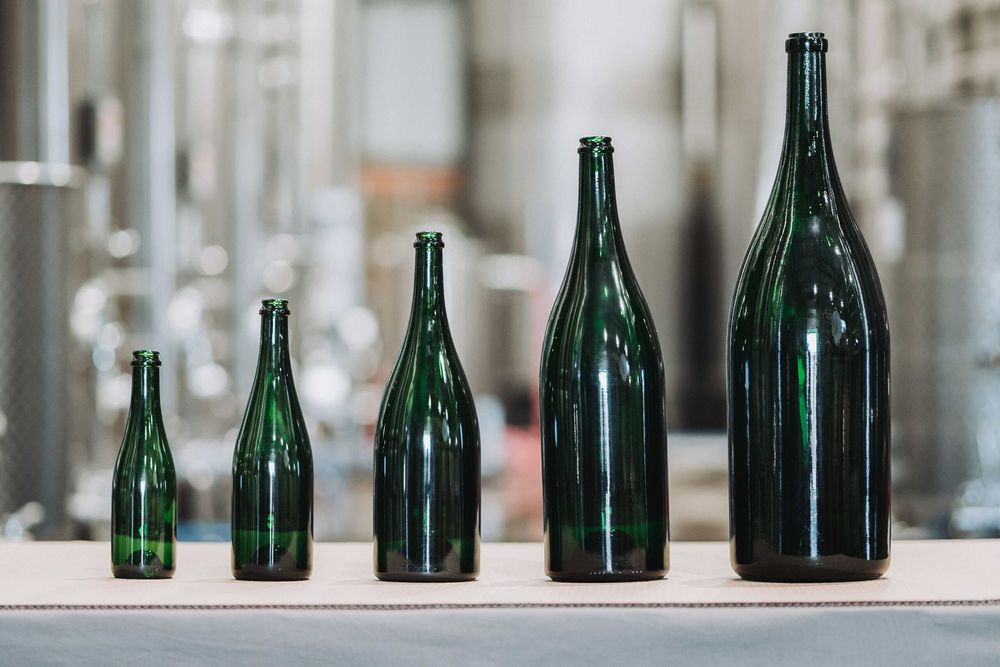
Defined Wines works with small, medium and major wine producers and growers
I remember being asked to make four different wine styles including a dessert wine, which sounded really exciting until we realised the guy had two rows of vines. We are just not set up for micro batch winemaking.
What is your background and how did you get into wine?
I lived in Germany a lot growing up and my father was great at teaching us about wine. As a result Hugh Johnson’s Pocket Book of Wine was in my stocking every year from much younger than technically I was allowed to drink and I ended up in the wine tasting team at university which was a lot of fun.
Does the success and failure of your business model lie in the quality, experience and expertise of your team?
Yes, a lot depends on the team. And not just the winery team but also the lab, production and admin staff, as contract winemaking is a lot about planning and logistics.
Tell us about them and their backgrounds?
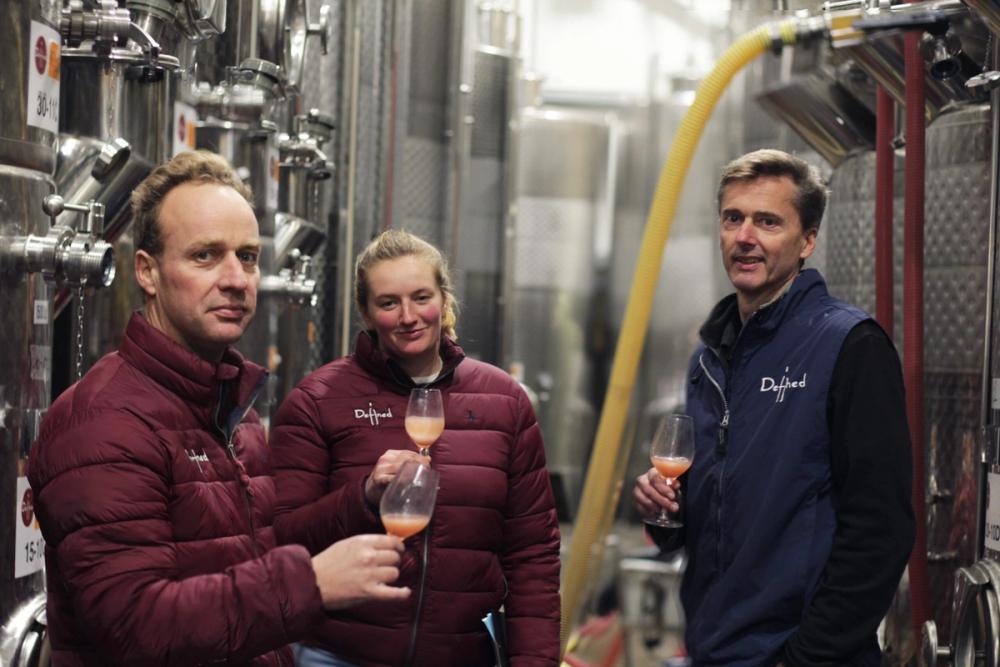
Defined Wine’s core team including Nick Lane, head winemaker, Poppy Seeley, operations winemaker and founder Henry Sugden
Our head winemaker, Nick Lane, spent six harvests in Champagne with LVMH, working at Moet and Dom Perignon before joining us. A Kiwi, he was a winemaker at Cloudy Bay for 13 years and has huge experience working with Pinot Noir and sparkling wine.
Poppy Seeley our operations winemaker is from County Durham, has an Oenology Masters from Plumpton College and had done vintages in Australia, California, New Zealand, South Africa and the UK before joining us four years ago, so has seen a huge range of wines.
Our assistant winemaker Janneke is South African; our cellar supervisor Pete grew up locally but had spent years selling wine before joining as our first cellar hand. Most of our production and logistics team are all local.
How did the relationship with Nick Lane come about?
Our aspiration is to produce world class wines for people, so I was keen to recruit internationally. Nick was working in Champagne and could see the potential of what was happening in England – it also suited domestically and as a keen cricketer, he wasn’t playing at all in France.
You have also invested in technology and winemaking equipment to give you an edge – what have you focused on and what services do they allow you to provide?
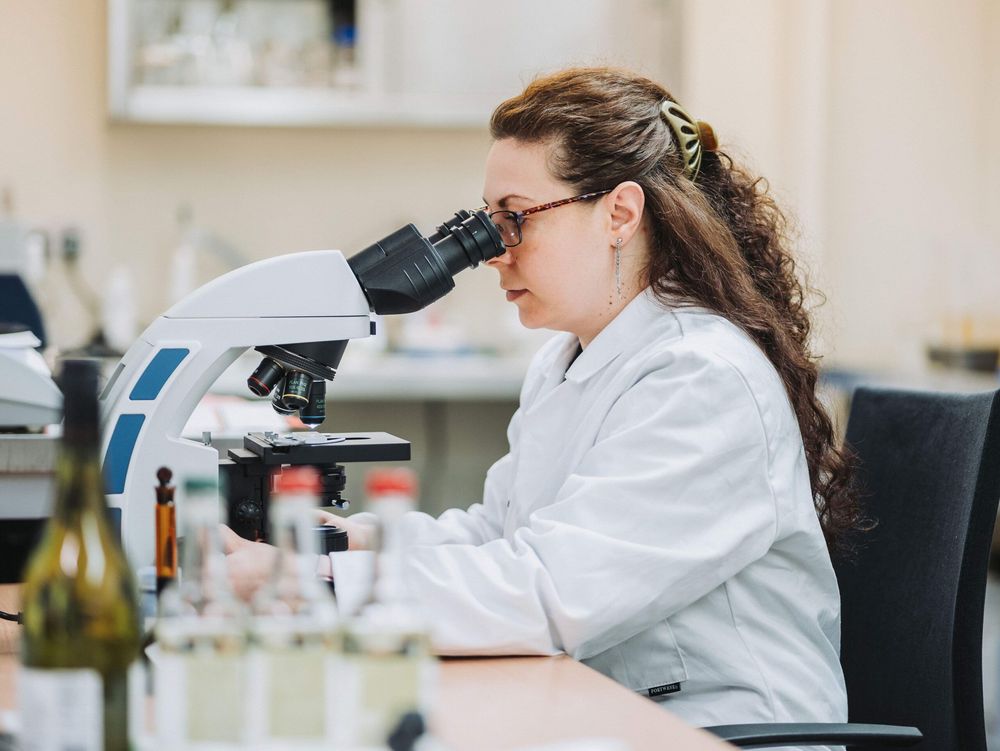
Investing in the latest winemaking technology and laboratory analysis is a key part of Defined Wine’s strategy
We want to make quality wine consistently and that has meant investing in suitable winemaking, lab and production equipment. Buying a Pall CrossFlow filter early on was a key statement of intent and has made a huge difference. In the lab, we have an OenoFoss; can measure dissolved oxygen and dissolved CO2 from tank or in bottle; and have at least two methods for all analysis. As a result we provide laboratory analysis for 42 other English wineries and importers. We have just bought a still, primarily for testing for VA but will provide a useful reference method for ABV, which may be required as the excise requirements change.
What other equipment and technology are you keen to invest in?
First up on Nick’s list is a super modern de-stemmer for reds to complement what we have already, which we intend to buy before this harvest. Next on the shopping list is a laser aphrometer (to measure pressure) as we have been approached in the past by people who have had problems with secondary fermentation in bottle and having a non-destructive method of analysis would be really helpful.
What are your growth plans and targets for the business?
Our clients keep growing, so we want to keep growing to support them and English wine in general. Planning permission has just been approved for us and Chapel Down to build on the land adjacent to our site, which will make Canterbury a hub for English wine. We are increasingly being asked not just to make wine for vineyards but also to make for brands or white label. As some of our clients sometimes have bulk wine for sale, we have set up a website for trading bulk wine, bottles on lees and grapes – https://wineandgrapetrading.co.uk
Do you only work with English wine or are you looking for contract work from around the world?
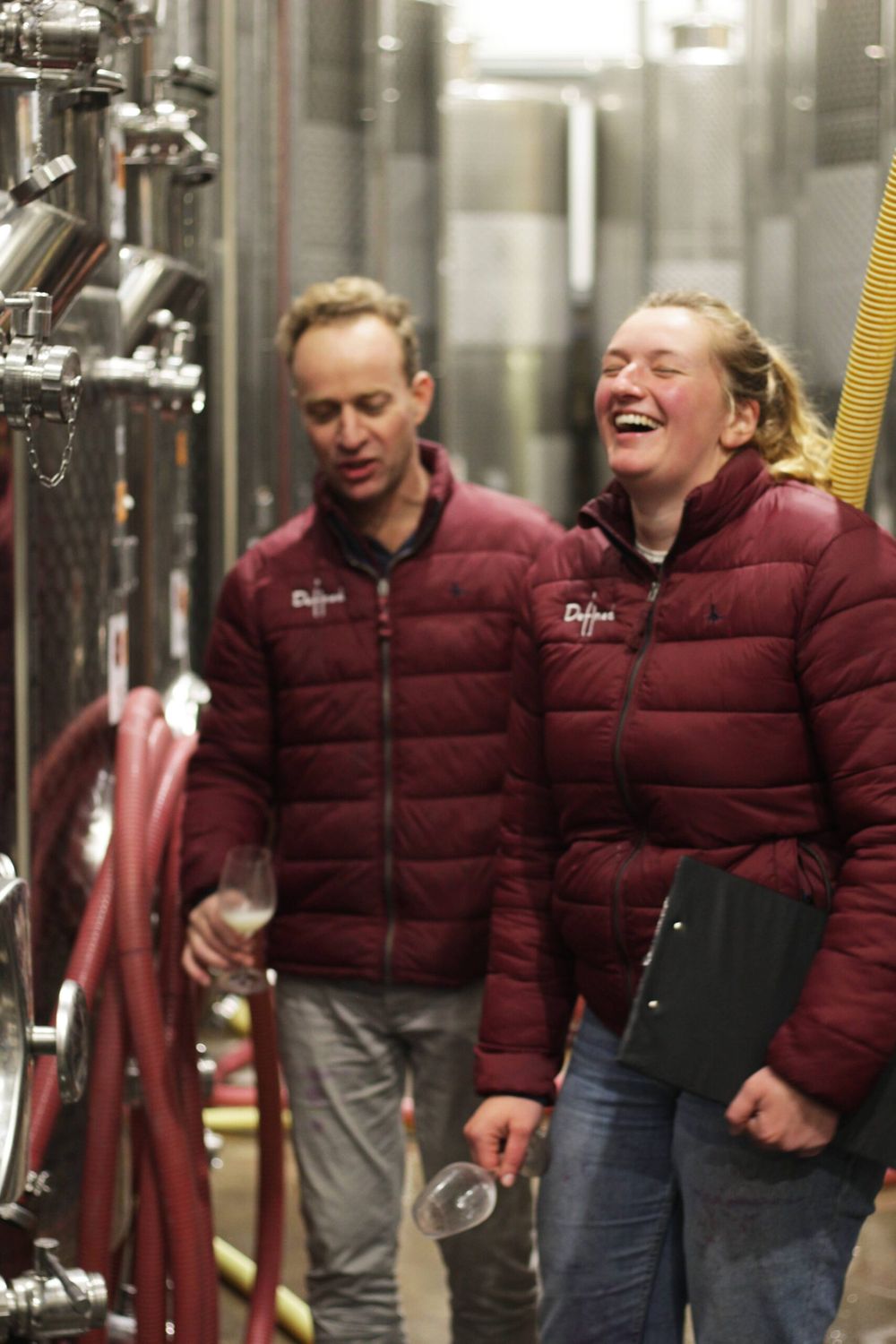
The Defined Wine team are looking at new services they can offer like working with the new paper wine bottle business Frugalpac
We just make English wine. However we can bottle small batches (1,000 – 5,000L) from outside the country.
Could this concept work for you in other countries?
No, our focus is very much about English wine.
What have been your biggest achievements to date?
Making great wines, providing international standard services to the burgeoning English wine sector and growing six-fold over the past four years.
What have been the biggest challenges and how have you overcome them?
Every day seems to bring another challenge, so my answer would vary depending on when you asked me. The English climate brings probably our greatest challenge as the rest: funding; having a suitable site; shortage of bottles etc, we can generally plan for and resolve.
Anything else to say?
A rare benefit of climate change is that it is changing what is viticulturally possible in the UK and I think this is an incredibly exciting time for English wine.
- You can find out more about Defined Wine here.
